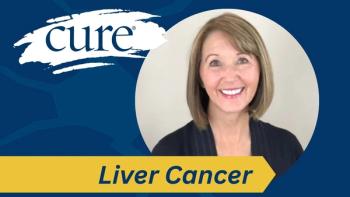
- Gastrointestinal Special Issue
- Volume 1
- Issue 1
Immunotherapy After Targeted Drug Shows Promise in Advanced Liver Cancer
Treatment with the PD-1 inhibitor Keytruda (pembrolizuumab) elicited promising progression-free survival (PFS) and overall survival (OS) results in patients with advanced hepatocellular carcinoma (HCC) who received previous treatment with Nexavar (sorafenib), according to phase 2 findings.
TREATMENT WITH THE PD-1 inhibitor Keytruda (pembrolizuumab) elicited promising progression-free survival (PFS) and overall survival (OS) results in patients with advanced hepatocellular carcinoma (HCC) who received previous treatment with Nexavar (sorafenib), according to phase 2 findings.
For 105 patients enrolled in the singlearm, open-label KEYNOTE-224 study, the objective response rate with Keytruda was 16.3 percent, with one complete response (CR). The median PFS was 4.8 months and the median OS has not been reached. The six-month PFS and OS rates were 43.1 percent and 77.9 percent, respectively. Treatment remained ongoing in 23 patients, reported lead investigator Andrew X. Zhu, M.D., Ph.D.
“With the availability of various options in the treatment of refractory HCC, I think what our data are showing is that single-agent pembrolizumab is demonstrating very impressive antitumor activity as evidenced by the response rate of 16.3 percent, but also a decent PFS in this population,” said Zhu, professor of medicine at Harvard Medical School and director of liver cancer research at Massachusetts General Hospital Cancer Center, in Boston.
Nexavar is standard first-line therapy for advanced HCC, with Stivarga (regorafenib) and Opdivo (nivolumab) being the only approved second-line options in selected patients. The phase 3 KEYNOTE-240 study is currently assessing Keytruda for pretreated patients with HCC, with a primary endpoint of OS (NCT02702401).
“We think that this agent may become another potential option,” Zhu said. “If that’s the case, this could be a new agent that we can consider for combination strategies, but also looking at biomarkers of response to this class of drugs.” Adding to this, he said that biomarker analysis will be conducted on tissue samples obtained from KEYNOTE-224.
In the phase 2 study, patients with advanced disease were treated with Keytruda monotherapy. In addition to the ORR of 16.3 percent, the disease control rate was 61.5 percent. The best overall responses were a partial one in 15.4 percent, CR in 1 percent and stable disease in 45.2 percent. In the responders, the median time to response was 2.1 months. Ninety-four percent of responders were estimated to have a response duration that lasted six months or longer, with the median being 8.2 months.
The rate of treatment-related side effects of any grade was 73.1 percent, the most common being itching, fatigue, signs of potential liver damage and diarrhea. Overall, 25 percent of patients had serious side effects and there was one treatment-related death, from ulcerative esophagitis. There were no flares of hepatitis C or B virus. Immune-mediated hepatitis occurred in three patients.
Articles in this issue
almost 8 years ago
Looking Within: Exploring Genomic Testing for GI Cancersalmost 8 years ago
Every Patient Who Has a GI Cancer Should Be Tested for MSI-High Statusalmost 8 years ago
A Major Turnaround for Liver Canceralmost 8 years ago
All Over the Map When It Comes to Survivorshipalmost 8 years ago
Beneath the Surface: Advancing Treatment for Cholangiocarcinomaalmost 8 years ago
Paying it Forwardalmost 8 years ago
On the Double: Improving Survival Rates in Pancreatic Canceralmost 8 years ago
Chemo Regimen Helps Control Locally Advanced Pancreatic Cancer



